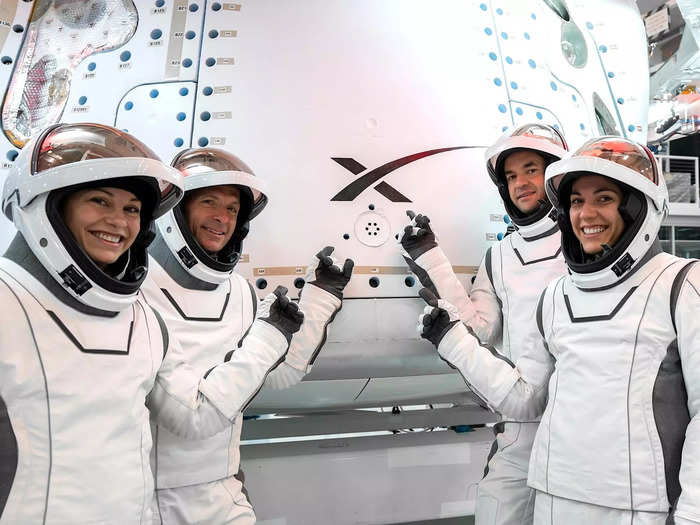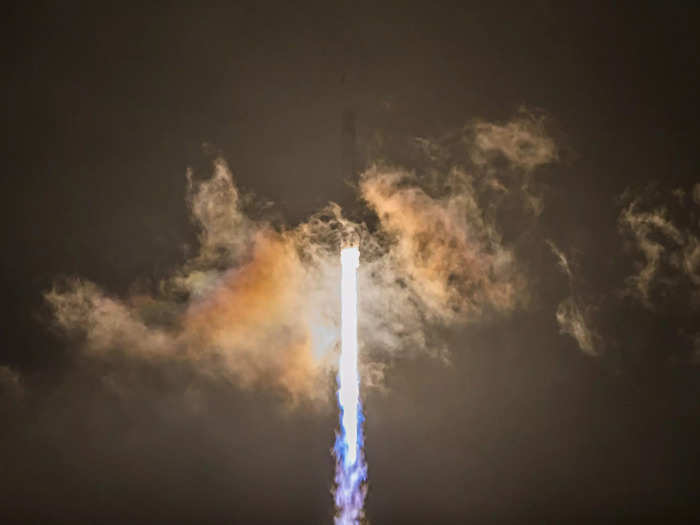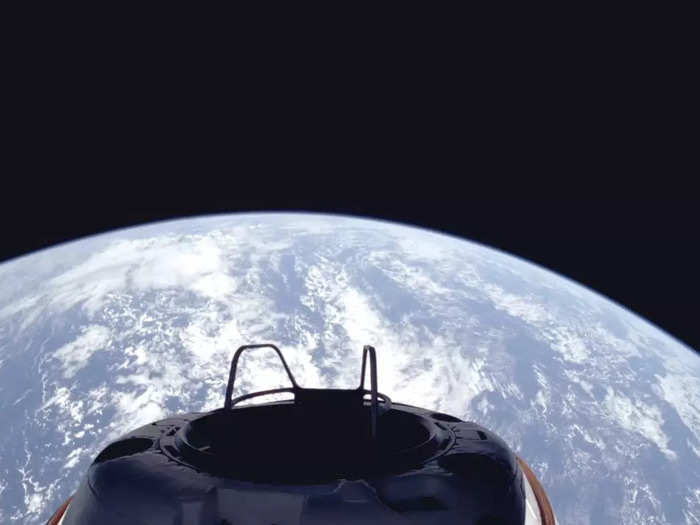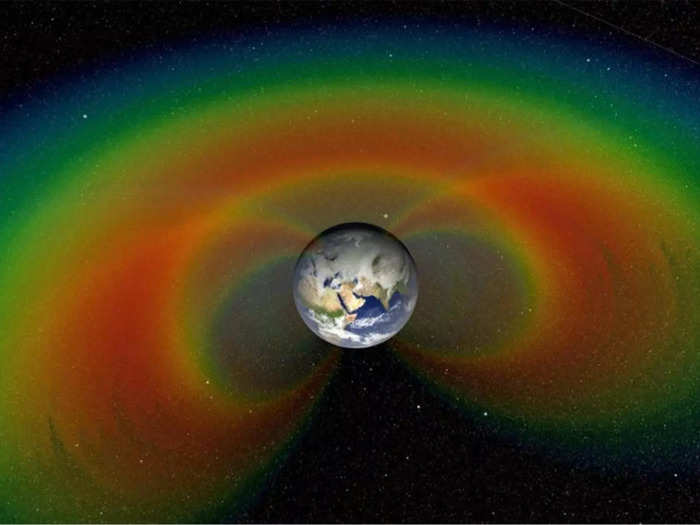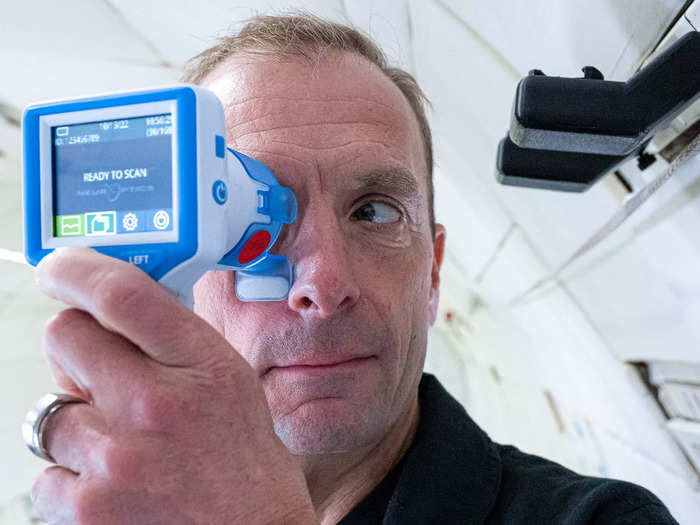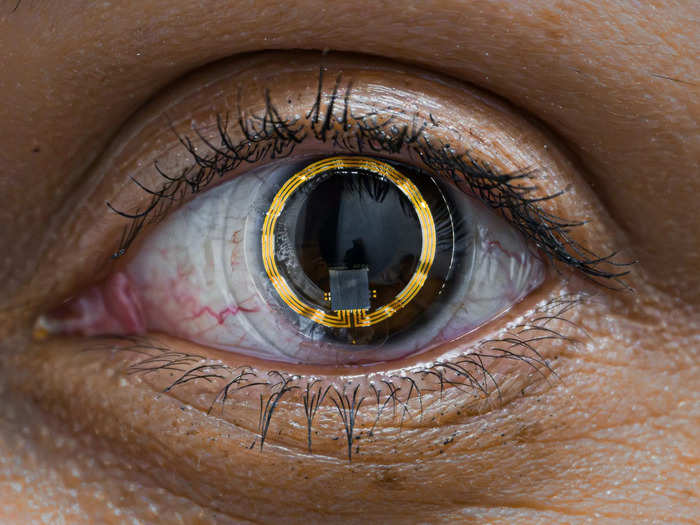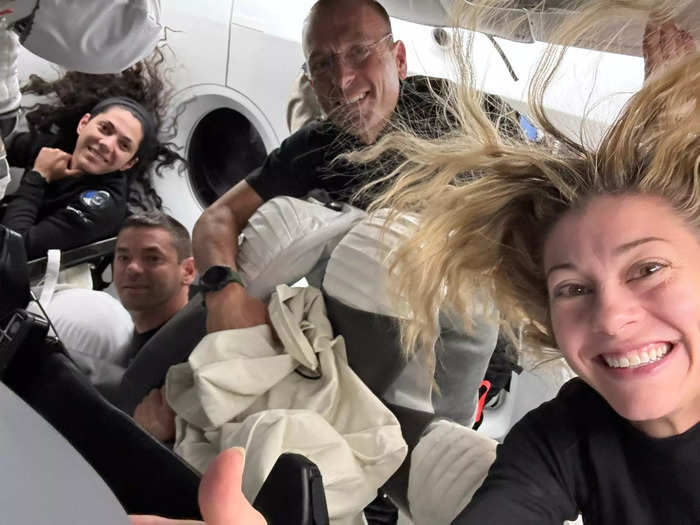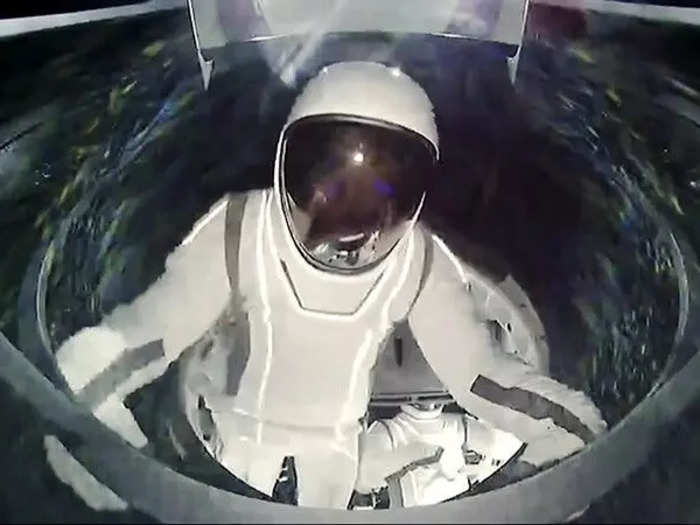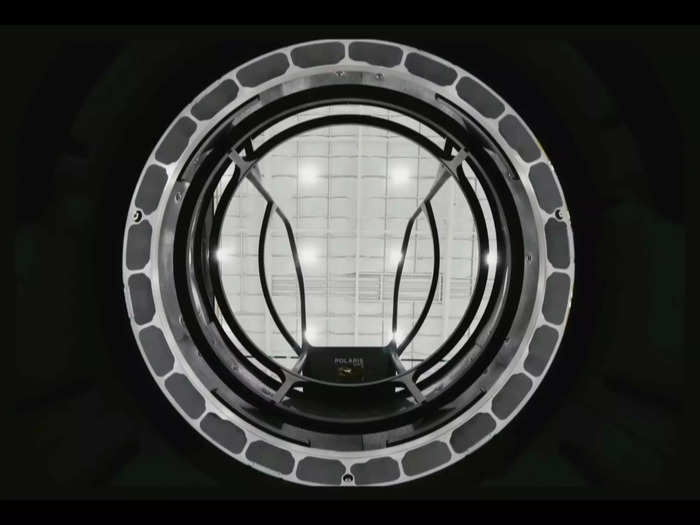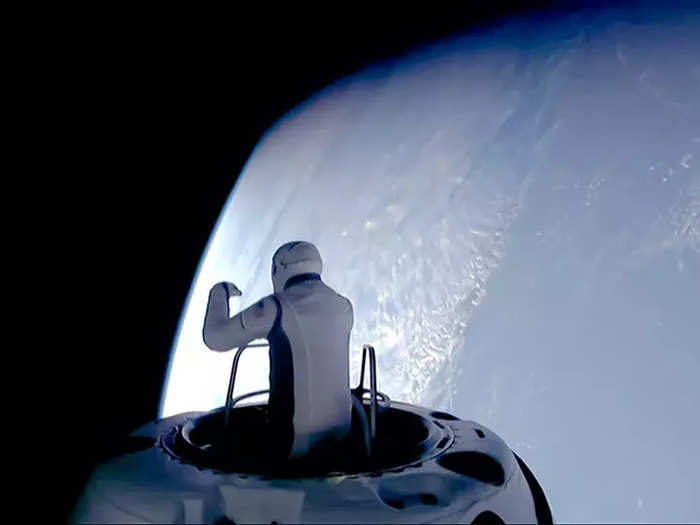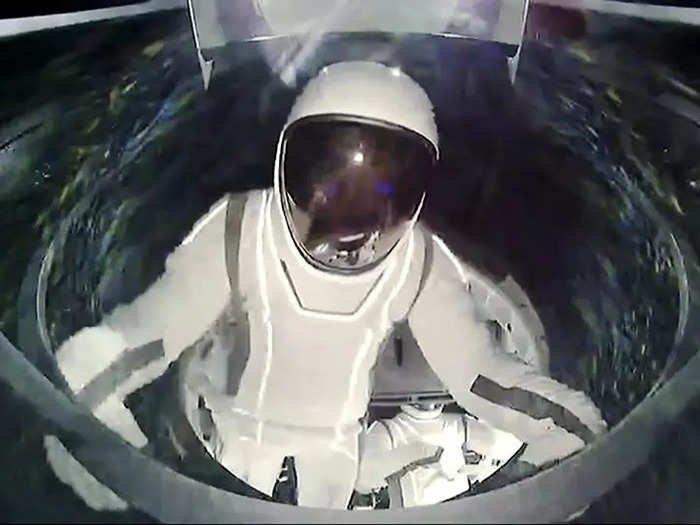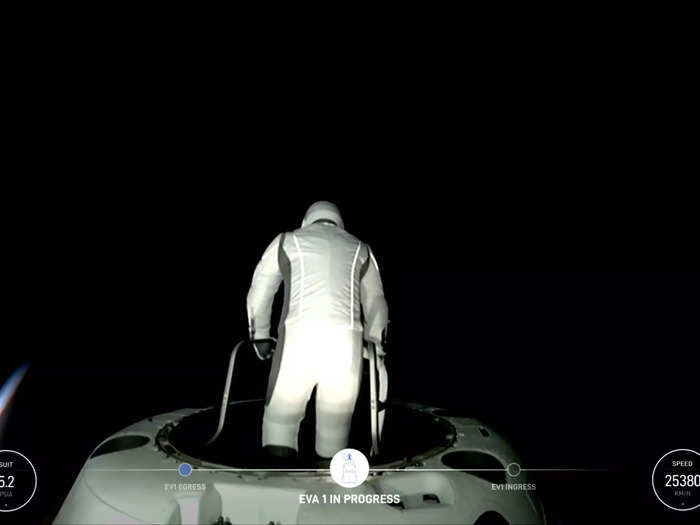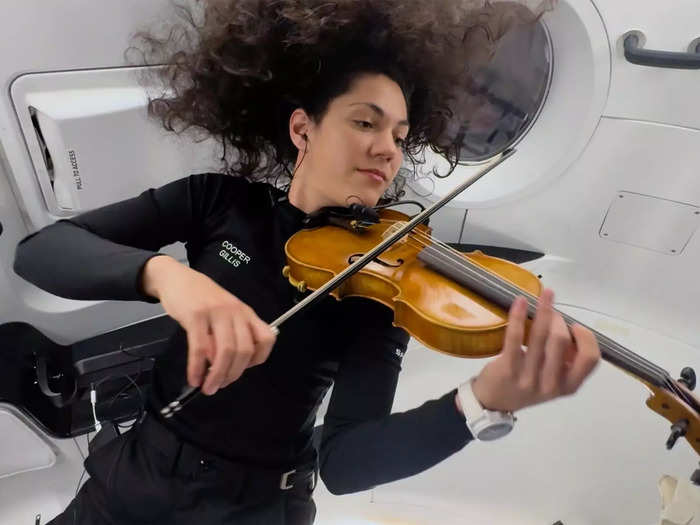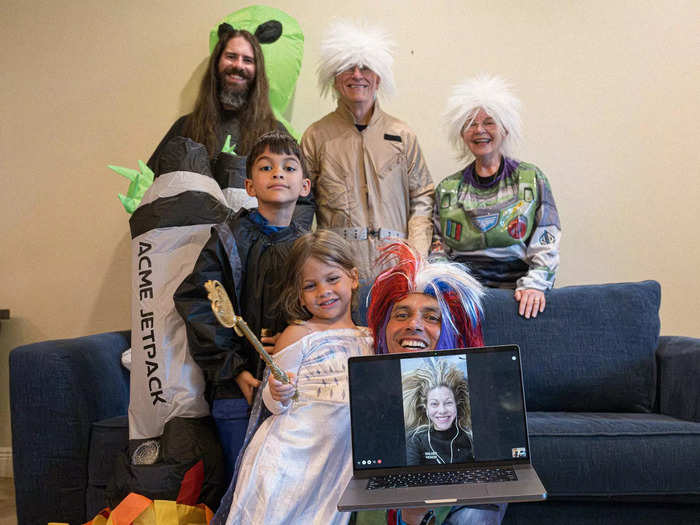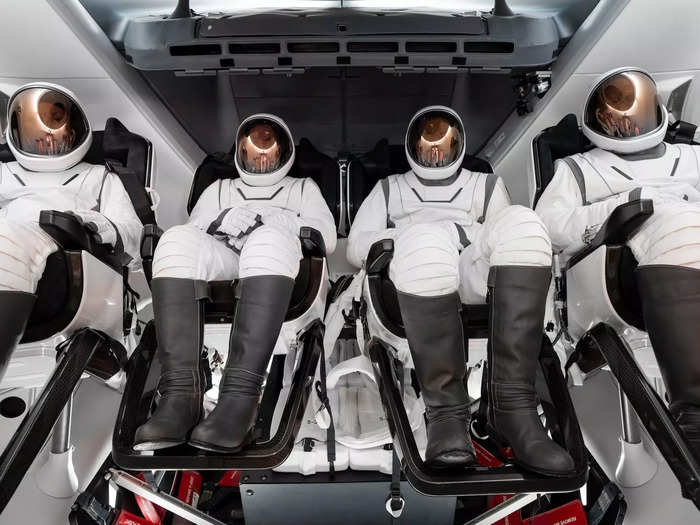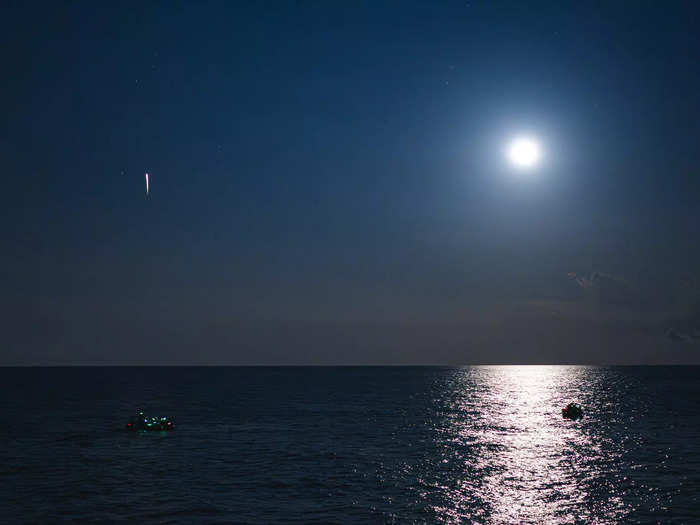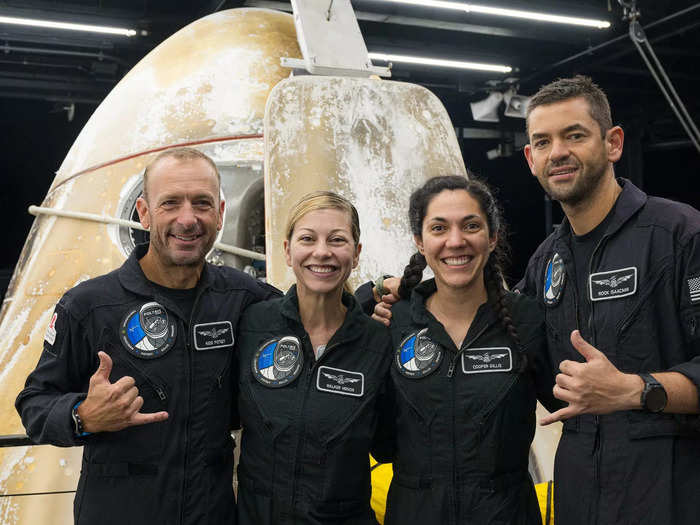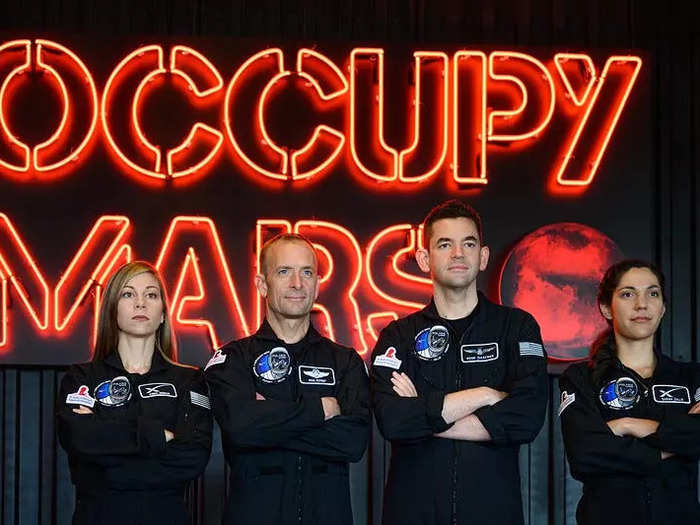The Polaris Dawn spaceflight was a mission of historic firsts. Polaris Program / John Kraus
- The billionaire-funded Polaris Dawn mission completed its historic spaceflight on Sunday.
- The crew completed the first private spacewalk and first violin performance in space.
Polaris Dawn finished its revolutionary spaceflight on Sunday when the four-member crew splashed down off Florida's coast after spending five days in Earth's orbit on the most ambitious commercial space mission, yet.
Though the mission was funded and commanded by a billionaire, this was no space-tourist joyride. Polaris Dawn was a scientific expedition.
The crew conducted medical experiments as they flew through belts of extreme radiation, used new Starlink space-laser communications, and tested out new spacesuits in the first-ever private spacewalk.
"We got a jam-packed schedule," Scott Poteet, the mission pilot, told The Washington Post in an interview from orbit.
Photos offer an inside look at what the Polaris Dawn mission was like, from launch to landing.
Meet the Polaris Dawn crew: Jared Isaacman, the billionaire bankrolling the project was mission commander. Scott Poteet was the mission pilot. Anna Menon and Sarah Gillis were the mission specialists.
For many crew members, it was their first time in space. SpaceX
They launched into space aboard a Crew Dragon spaceship on September 10.
A Falcon 9 rocket carrying the Polaris Dawn mission lifts off from Cape Canaveral, Florida. Polaris Program / John Kraus
They flew farther from Earth than anybody has traveled since the last Apollo mission, over 50 years ago.
A view from the Crew Dragon spaceship far from Earth. SpaceX
That sent them through the Van Allen belts, a pair of donut-shaped regions of extreme radiation around Earth.
An artist's concept of the Van Allen belts with a cutaway section of the two giant donuts of radiation. NASA Goddard Space Flight Center/Scientific Visualization Studio
The crew conducted a dizzying array of experiments to study the effects of radiation on their bodies, helping SpaceX prepare for future human missions to the moon and Mars.
During the mission, the crew monitored their health to compare to tests from before and after their trip to space. Polaris Program / John Kraus
They wore "smart" contact lenses to measure the pressure in their eyes.
The Polaris Dawn crew used "smart" contact lenses to constantly measure pressure in their eyes. Polaris Program / John Kraus
The crew also tested SpaceX's Starlink satellites, which provide internet to rural communities on Earth. Turns out, Starlink works in space, too. They beamed this photo to Earth using a new Starlink laser system.
The crew posted this selfie on X using Starlink from their spaceship. Polaris Dawn crew
On September 12, it was time for the mission's main event: a daring and risky spacewalk, the first-ever private spacewalk.
Polaris Dawn completed the first private spacewalk. SpaceX
To prepare, the crew conducted a 48-hour "pre-breathe" before opening the spaceship's hatch and exposing the ship and everyone aboard to the vacuum of space. Without the "pre-breathe" the crew would be at risk of a dangerous effect called "the bends."
Finally, it was time to open the Dragon's hatch and climb the railing into space. Isaacman and Gillis left the spacecraft to perform tests on their spacesuits.
For the spacewalk SpaceX added new handholds and footholds to the Crew Dragon, including around the hatch. Polaris Program via X
“It’s gorgeous,” Isaacman said as he looked around. “Back at home, we all have a lot of work to do, but from here, Earth sure looks like a perfect world.”
Jared Isaacman stands at the hatch of Crew Dragon during the world's first commercial spacewalk. SpaceX
Isaacman and Gillis each took turns standing in space and testing their suits' mobility. You can watch the whole spacewalk on SpaceX's broadcast, below.
"Stepping out and seeing kind of the cusp of the world is absolutely incredible," Gillis told The Washington Post a few hours later.
Sarah Gillis takes her turn at the spacewalk. SpaceX
The spacewalk lasted less than two hours. "It felt as if the time just slipped away," Gillis said. "I wish we had maybe just a couple more minutes to see it and experience it and take it all in.”
Jared Isaacman looks out into space during his spacewalk. SpaceX
Polaris Dawn was a mission of historic firsts. Lifelong violinist Gillis became the first person to play a violin solo in space.
Sarah Gillis plays the violin while floating in microgravity inside the Crew Dragon. Polaris Dawn crew
She chose "Rey's Theme" from "Star Wars: The Force Awakens," and was accompanied by video performances from orchestras on Earth.
On their last full day in space, the crew used Starlink to video chat with their friends and families.
Anna Menon's family dressed up to video chat with her during the Polaris Dawn mission. Polaris Program / John Kraus
Then it was time to strap in for the return journey home.
The Polaris Dawn crew sits inside a Crew Dragon on Earth before launch. SpaceX
As the capsule plummeted back to Earth, the crew crossed their arms to prepare for splashdown. Parachutes deployed, and the capsule descended into the Gulf of Mexico about 70 miles from Key West.
The Crew Dragon capsule splashed down off the Florida coast on September 15. Polaris Program / John Kraus
"We are mission complete," Isaacman radioed from the capsule as it bobbed in the water. Shortly after, a SpaceX ship recovered the capsule, and the crew emerged after their successful five-day mission.
The Polaris Dawn crew appeared healthy and happy after emerging from the spaceship's capsule after their five-day mission. Polaris Program/John Kraus
Isaacman hopes humanity will one day become a spacefaring species and aims to help make that happen with Polaris Dawn. "In the future, tens of thousands of people will be working in space on multiple space stations, lunar bases, and Mars outposts and not all of them will be government astronauts," Isaacman wrote on X after returning to Earth.
Polaris Dawn helps pave the way toward realizing Elon Musk's dream of settling Mars. Polaris Program / John Kraus

